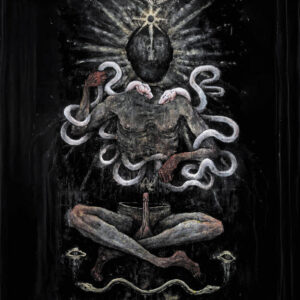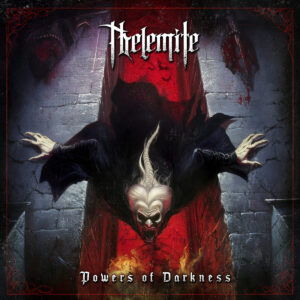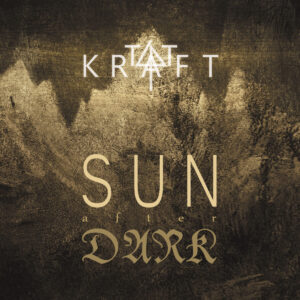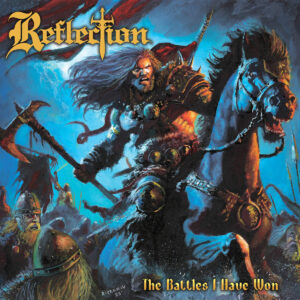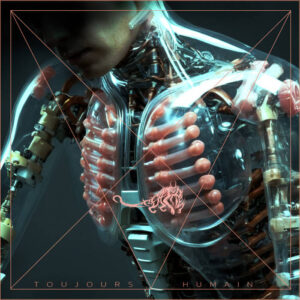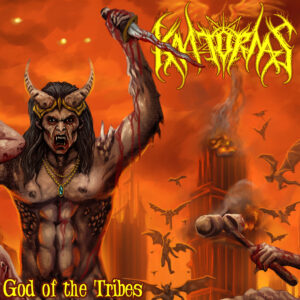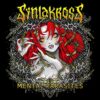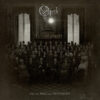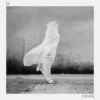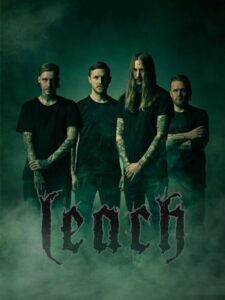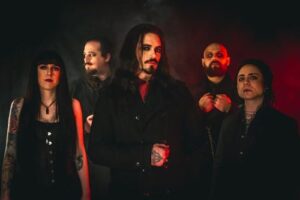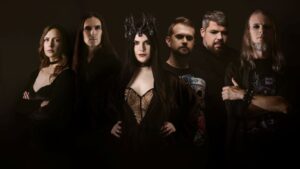Mikaela Attard
Mikaela
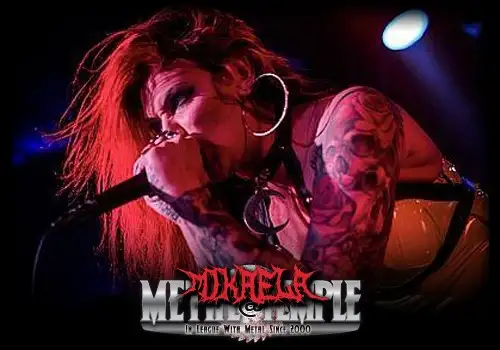

Mikaela: Thank you very much. I hope your family is safe too.
Mikaela: Well, 2020 did not start with the pandemic right away. Last year, I still had the chance to do a few shows, we played London and in Wales. So we did have a few opportunities, obviously that stopped very quickly then. I think we started with a lockdown or partial lockdown in Malta in March. My 2020 resolution for it was actually finishing off with the new album, even though I missed the people so much, and meeting fans is everything for us. You have been in connection with so many people from all around the world and different cultures, and it is nice to hear from everybody. But I think with the album, I spent a lot of time at the studio. I wrote literally just disconnected from everything. I think that worked the best for me, because I wanted to get as deep as possible and unaffected as possible from anything that was happening. I mean, it is really hard, but if you really go in your place and do not let the distractions get through to you, then you do a pretty good job. When you are recording, I think you need to be alone for a lot, for some time at least. So you really find what is authentic when it comes out. We had logged on to the recordings for the album in January, with Marco Minnemann doing the drums in San Diego. Then we continued with the guitars and bass in March, so basically then we were locked down. I was just finishing off recording the album with Kyle Ferrugia with the guitars and bass, and then finished off everything else, backing vocals, effects, piano, and keyboards. So, I was pretty busy. I also was pretty busy behind the scenes, it kept me busy and it kept me insane, because it could drive you crazy staying indoors. I love to stay indoors sometimes, but I definitely like to meet the people and do concerts and shows. When the album was released, I was busy a lot with the album orders and doing interviews, which is helping me as an artist as well and let me continue with business as usual a little bit. I think it could get to you like sometimes now when I have some more time. Obviously, I am planning other things for this year, but sometimes it can get very suffocating. I think that is the main vibe that I could get from not being able to do a lot of things that we love as artists and also as a concert attendee because I do love to go to other concerts to myself. Unfortunately, that is going to be done and I feel that music is still not considered as essential to the authorities in general. You hardly hear about music on the news. So I do get that vibe of suffocation sometimes especially here where we live on an island. Sometimes we just take the car and drive around infinite kilometers or going to other places and countries. Even though many things are closed, you can stop at a bar or you can meet friends. It is still limited, but at least you could go and appreciate other things about the country. You could do that here in a very limited way. I think it is like four to five minutes, you would probably cross the island without traffic, let's say in an hour, maybe an hour and a half. I could feel a bit suffocated if I wanted to. It is definitely something that you could feel, but I kept myself busy with the music stuff. It takes a lot of preparations, it is almost like a solo project, which I feature, obviously, other artists with me. That means that I have to do everything myself. So, I am quite busy.
Mikaela: I would say that 2020 was my real debut. I started singing at a much younger age. I released my first EP at this time, which was more towards Alternative Rock. I was 10 years younger back then. I always wanted to release a Metal record and I was working towards it when I was younger. I had other producers that were working with me and they kind of deviate you but you are young and doing the first thing. Sometimes you would like to listen from other people and see what they have to say. So, I allowed it when I was younger, but Metal was always what I wanted because it is that I mostly heard. Let's say mostly, because I also do hear other kinds of music. When it is a good album, then it is a good article irrelevant of a genre style. So it was more towards Alternative Rock. Then I was working on another EP, which never materialized. I could have been busy with a lot of collaborations with other bands and other artists at this time though. I had then debuted actually with some of the material that you hear on the new album in 2018 over here in Malta. I t was July or August 2018, when I debuted with some of the songs at one of the big festivals we have here, which is a beer festival. This is very renowned in Malta. So I launched the stuff over there first, and after a while I joined MartyriuM for a few shows and a few tours. That I left then. That was done. I actually had started working on the project Mikaela which never stopped as a project. I have just had given a bit more of priority to other projects. At the beginning of last year I wanted to make that year for the music release for Mikaela. My time cleared up a lot more and I could actually focus on what really matters. So I was really happy to launch the album last year even though I wish that Covid never happened. I am really, really happy with the interest and the attention the album receives. A lot of time was spent from bands, from fans and followers listening to my album. I think it is a beginning of a chapter, it is the beginning. So it is really cool that I have started on an authentic page and there is a lot more to come this year. I am excited.
Mikaela: It was great. It was great to actually meet Heidi and Carla from the Butcher Babies and tour with them. They are fantastic girls. Also Kobra from Kobra And The Lotus, she is an amazing girl. It was an honor definitely for me to be touring with them and such an amazing vibe. It was a pleasure to get to know the girls, there are some chats and other things since you spend a lot of time with the other bands. It has just been amazing. The tour buses, it was amazing drinking and stuff like that, obviously, not just about that, but we would chat about things and to get to know them more. I think that was really, really cool. We were going around Europe quite a lot, Germany, The Netherlands, Belgium. I think Heidi even has me on her popular Spotify playlist.
Mikaela: I have done the announcement just to close a mind bending chapter. Well, I have learned a lot of things both, good and bad. It started as a great learning experience in the beginning. Then I started to find out a lot of things that just feel wrong already, but would not say them at the beginning because I prefer to hope for the better. Maybe it is my perception and I am seeing them that way, but then some things get unacceptable literally, from the conditions how they treated me as a front, how they used my pictures and stuff like that and then they do not want to hear what I want to say. I think that is very wrong. Female artists are just like anyone else, male and female. It does not matter to me. For me there is no sex, it is just music, but when you have guys using a woman as a front just to fit in the female-fronted scene, it is really wrong. They told me I am nothing. You cannot say that! No one is nothing, no one is nothing in this world we are something; everyone is unique! When they try to tell you that, in the beginning you act baffled and confused, but at the same time as a realistic person you are like: okay, is it true, is it this or that? They try to infiltrate doubt in you, and they are great manipulators. They are very good at it. So, not a lot of people could see that I had to experience it firsthand. It is not only them. I hear a lot of other cases in other bands. I found out about a lot of other bands that do these things to women in the music industry. It is wrong. I wanted to talk about it, so I could encourage any woman out there who is experiencing the same thing. It is just not right! Do not stay there to be oppressed by people that are just using you for who you are, who do not want to have your opinion; and who objectify how they want you. It is wrong. It is just wrong! Once I left, it became much clearer to me. During the coronavirus pandemic, when we had to stay indoors you think a bit more, you kind of cleanse a bit the auras around you, and you really dig deep. If I am not heard, if I am not respected, if I am completely ignored and if I am used, no money was ever communicated with me from that we got paid, and I do not know where the money goes, if this is just common band dynamics, why the hell should I stay in the band? There is no reason for me to stay, so that is why I wanted to really work on my music. What I have done is I actually resuming work. I did not just start the work, the work has always been going on. I was like: okay, this is the time now I really want to work on "Nocturne In Red" because this does matter to me, this is I wanted people to see me, this is I wanted people to relate to me as an artist. And I am so happy that I succeeded.
Mikaela: It was great. As soon as I released it, I have been having a lot of feedback, great feedback from all around the world. That was not something I was expecting, from places like, Mexico, Canada, United States, as well as Germany. It is really amazing for me to see all these things. I have been having a lot of reviews like, obviously, yours which is one of my favorite ones. So thank you for that. The feedback is great, even from fans and from followers, they are still digging the songs, they are tagging me and stuff like that. People are talking about it, sometimes I find it in groups, in Facebook groups talking about the album. So it is really awesome, it is, honestly, emotion. I think it has started something for this project, considering that I come from a country like Malta, and there is not much of an industry here. It is really tough of make it from over here, because you would have to start from overseas as a first step. It is quite a big step. So to have people finding out about me from these places, the stretch of the map is just like, wow!
Mikaela: The concept of the album is about state of the mind. In fact, even it is even portrayed in the artwork on the album. I hold on a crystal ball and assigned to it the human brain. It is dripping black blood from it, and basically what it means is that it is about six different states of the mind and it is different how we perceive them, but sometimes we still are the same in the difference. So that is what it generally is about. All the songs are about a particular episode and that is what inspired me to write a particular song. I think you probably refer to "Bring Me Blood". That was inspired by an extreme event I went through in the past. I was the victim of an attempted murder here in Malta. I wrote that song in literally five minutes basically, it was just spitting out the words and music. It just came right on and that is why I decided that it should be the first single on the album, because it is so authentic. It is like: I left from somewhere over there. The song speaks about the anger I felt towards the situation and also towards the misunderstanding of court. I do not think it was well dealt in court, I think justice was not delivered. Frankly, I feel 100% like that, but my space to speak to the people is music. So that is why I wrote the song, I wanted to pass along that message that it was a dark time for me. Even though you might be so low or die within yourself, you might think when is this going to stop? It is crazy and then you are even questioned and doubted. What the hell! As the victim! My face was everywhere and the aggressors face was nowhere. So where are the priorities for that? It really made me angry, because even news put my face out just because I am a singer. What the hell! Where is the aggressor's face? People could know then if they come close to people like these and go away. So that was really an angry and a dark time. I wanted to translate it in the song and say that no matter how dark and how weak you think you are, you are not! You are actually strong and by the end of it, you will come out stronger than ever. Just hang on tight! I think you could refer to the Coronavirus I guess in a different universe of course. I mean, right now I can assume that a lot of people are probably not mentally at their best. I could definitely understand that because there are a lot of things that we cannot do and we are not allowed to do. Sometimes meeting other people helps us to stay connected with the world but then when you are always alone, I think it could definitely play upon some people's minds. I totally understand that. So I just want to say: "hang on". This will be over, it cannot be forever and we will be stronger because we would have lived and persevered.
Mikaela: I think you learn to live with it. Thankfully, I am alive. Well, I was angry with all the things and I thought that it was too hard for me. But now I feel like I have healed from the situation and I think I only could do that when I wrote the song. The emotion came out and I had to let it out in some way. I think using music as part of our emotional release is the best thing to do. It is something that I am trying to pass a message along with. I think for some people it might be hard to keep on repeating the same thing. Maybe? I do not know. But I think you really deal with it, if you talk about it a lot. Some psychological advisors I have had before said the fact that I caught him and he did not escape the scene, which I was lucky enough, helped me finalizing it. That helped me winning it in my head. When I wrote the song, I really wanted to pass on this message. It was crazy how things happened to me and even in periods after that it was crazy. When I wrote that song, I felt I dealt with it. As an artist, I felt that it helped me expressing it.
Mikaela: I have written all the lyrics and the music of the songs. I have drafted them out obviously, and I have even written drums and guitars, since I am a musician myself. I play piano quite a lot and I have a massive idea of the guitars and the drum content. I also studied programming and stuff like that at the Berklee College of Music. That really helped me continuing my own album myself and it was easy for me to communicate what I wanted to be played and performed by Kyle Ferrugia [bass; guitars]and by Marco Minnemann [drums], because I had programmed everything. I have written everything with the piano. So the musical content was actually written. The lyrics did not make it sometimes in the studio, I think I have changed it here and there. When you are recording something, it comes out and the studio is your playground for all sorts of things. That was the process. We started recording the drums and then we started recording the guitars. Afterwards I started recording the bass. The reason I have done that is that it is more guitar driven than it is bass driven and I preferred that the bass was complimentary to guitar. Then I performed the vocals. Everything was done before as a pre-production, because that is how you follow it. Finally I have done all the keyboards and the piano. For a song like "Abyss", which is mainly based on piano, I had to do the piano first. All other things then just keep building up, obviously, some of the songs are also effects based. That came along, whilst I was producing. I guess, you often work on an idea, and then you develop it, then you close for the day, on the next day you work on it. Sometimes it is really great and you keep it. Sometimes it is like: no you leave it. In the meantime, I was also consulting with Tue Madsen, the guy that mixed and mastered the album. He is an amazing guy, he is a legend and such a good friend. He was also putting his input in everything. So it was awesome. Then we went into the mixing process and I was sending him scripts of things. I am so happy to have worked with him. How it is mixed and mastered I just love it. So I was very, very happy and could not wait for the people to hear it. I think it was ready by May 2020. The album was ready! You can imagine that I had to keep it all in until the actual release date in October 2020.
Mikaela: I really cannot choose if I have to be honest. But just because people found out about this project more than anything else, I would say, "Bring Me Blood". I would just say that because it resonated a lot with the people. And it has introduced me to a lot of people already right from the start.
Mikaela: It is really an interesting point that you mention that because I think that is the oldest song on the album. So basically you would have loved it from the start anyway. I knew Marco first since we have been friends for about five years. We met in a lot in different countries, I went to his shows and he came to Malta to visit me. I actually performed on his album first, on his latest album called "My Sister". I performed on two songs called "Working Town" and the title song "My Sister". It was a great process. We heard his songs, he heard my songs and he was like: Oh, my God, I really want to play on your albums. Hell yeah! He is an amazing artist and an amazing drummer for whoever knows him. A lot of people do actually not know who he is. It is an honor to have him on the album, it is a dream. He plays exclusively on all the songs. About Tue, I got introduced to him in 2020. We started we started corresponding in 2020. He completely likes the songs and he wanted to work with me. I was like: "Yes, let us work on the album". Actually, I used to study music production at Berklee College of Music, and I have a Bachelor's degree, but I cannot tell you how many hours I watched him mixing on YouTube. So to be working with him on my album it was a dream come true. Kyle has done an amazing job on guitars and it was quite a lot of work. He has done amazing work. So I take them all from here.
Mikaela: I put on Steven Levi Vella [photographer and producer] on both of them since he is an amazing artist and his concepts are amazing. Basically, what happened was that I started talking to the producer and I passed along all my ideas I had for "Bring Me Blood". Actually, I put in quite a lot of details, I mean, whoever knows me, I like putting a lot of things down. I am all about the details. This way, you see different things in the videos than you usually see. I would communicate with him and then we would see what is possible and what is not. Obviously, a lot of things are limited with the budget, the more budget you have, the more amazing things you can do, for example after effects and stuff like that. Video is a really, really amazing world and I enjoy it too. In fact, it was also part of my degree. So, working with another artist who has had great experiences with other artists has been great. Then you start to build it together. You start to build-up timelines and see what works, and see what does not work. Sometimes you have things planned that eventually you would record and then, when you are editing them afterwards you will find out that it does not make sense, so you cut it off. It is always a process to the very end, to the coloring, to everything. I am there every step of the way, because I want to make sure everything is how I imagined it as well. "Chaotic Mind" had a smaller group, in terms of the actors while "Bring Me Blood" had a lot more people involved. Obviously, that was great. There was one crowd scene and there were a lot of people there. "Chaotic Mind" was more based on the visuals, the colors and the symbolism behind it. It is about the mind and it is about the chaos within the mind. You are perfectly fine if you think a lot, but then maybe you are not because you go overboard and you go crazy. Basically what the video represented was my emotions. If you remember the scene where I was on the bed and levitating and there are people there and they represented my emotions, like emotions pull you to here and there. I like using symbolism a lot.
Mikaela: A lot of that and a lot of hours to fill it. I mean, sometimes the more you film, the more things you have and the more scenes you have. Then you still want more and you still need more time. I remember the one where I did levitate in the sky and it was quite majestic. It was cool to see. It was crazy, but it was so cool.
Mikaela: I definitely love that area. I had actually started with vocal performance at Berklee. The campus was actually not campus in 2011. Then I finished with a degree and I definitely imagined that I always had this ambition to know more behind the process. I did not just want to be a vocalist. I think you are describing this as scratching the surface. Honestly, the more you know about music, and the more you know how things are done behind that, I think being a vocalist is just the tip of the iceberg. I think it is good to you have some kind of knowledge. I mean, you do not have to have a degree if you just like to read about mixing, mastering and production and you have the space to do so, I think it is just awesome. But I really wanted to get that formal degree. So that is why I applied for that degree course. It was very important for me, it was a game changer, because I have always seen music not from a vocalist perspective. I have always seen it as a musician's perspective, since I am formally trained and piano classically trained and also jazz trained. So I always wanted to get behind all of it. Then when I finished the degree I did not think I was going to produce this album, in all fairness with you. It is like you are trying to find maybe an excuse. But then I started working on it because sometimes when you are working on your own album, you spend so much time looking at it in one perspective and sometimes it is hard to put different hats on, like the producer's hat or the musician's hat. So it is really hard, you have to take a few breaks to let it go for a moment. Then you go back to it and you have to re-visit a lot more, when you are doing a lot of things yourself. That is why I wanted Tue on the album. I was also happy to have a mix and master because it was, apart from his amazing expertise, a fresh pair of ears, and he could just give his view. That was amazing and I am so happy that eventually I ended up producing the album. I do imagine this in the future and actually, there is another artist this year I might be working with in production terms. So I guess you will be seeing more of that from me.
Mikaela: Definitely. Well, I am actually looking into it right now. Last year I was more focused on the album, since I wanted to finish it and there are some more things I want to do for this year. But that is definitely part of the plan. Definitely!
Mikaela: We never know enough, right? The more you read things, the more we grow, and that never really stops. I mean, it is great as well because once you get acquainted, once you know a lot more about the things inside, it is easier to tell producers and mixing engineers what you have in mind more transparently when you communicate with them. Production is very amazing. The whole work itself is very amazing and very important because I do not think songwriting is enough, especially nowadays, even though you cannot really change a bad song into a good song just because you have good production. I think it only amplifies. So if it is a good song, it can become a really, really good song, or it can become a great song. If it is a good song with a good melody and a good rhythm, it is very hard to mess it up. But if it is a bad song, I think it is going to be very hard to make it sound like a good song. It is an amazing world!
Mikaela: Malta is not big at all with a population of around 500,000 people. It is a tiny island, we have the same population as Iceland but a lot of great artists come from Iceland especially pop artists. I do not think it is quite within the culture to appreciate Metal a lot. It is not the mainstream at all. With the Metal scene, there are a lot of bands and actually, if you play here, a lot of the people in the crowd perform themselves. In general, I think it is very hard to make it, you have to skip the first step and it has to be outside of Malta, unfortunately. Sometimes when you come back, that is when they will appreciate you, which is a bit sad, but it is reality. It happens often. It also happens often that bands do not support each other. I think it maybe is an island mentality. So you really have to work hard, because sometimes you are on your own, and you really have to push hard. What I mean by on your own is that charity begins at home area. I am not alone, I have a lot of people that support me and they are with me within my community, and I love it. It is a worldwide community and it is always growing. But it could be hard because Metal is not so appreciated. I think it is changing slowly in Malta. I mean even tattoos are still a bit weird here, it is a kind of conservative mentality and Metal still relates to Satanism only. It is hard to explain. If I am walking in the streets, I get strange eyes. I really do not care that much, but I get it.
Mikaela: There are a lot of more plans. There are going to be more releases, of course, and there is going be more stuff to be unleashed. I guess I cannot really talk so far, but I am planning a lot of things. Touring is not one of the first things that would be possible in 2021, unfortunately, as much as we want to hear that 2021 might be the year for performances. I think it is better to wait. I know there is a lot of more concerts prepared and I have seen a lot of tours organized. I really hope it changes with the pandemic, but being realistic, I think it will stay around for another year. This year, especially for unsigned and upcoming bands, it is going to be much harder than for established bands to even try to plan a tour. There are obviously requests and there are plans on it, but you cannot really announce anything you do not know if the pandemic is still around. I mean, not everyone is going to be comfortable and it is hard right to just continue with a toy when we are in the middle of a pandemic. So, let us hope there will be more touring in 2022. I think we can just hope for that at least.
Mikaela: I think Jinjer has done an amazing job. Obviously, whatever can be done possible, but I do not want that to be the new thing. I think that would really destroy Metal. I do not know if a lot of bands would comply with that, the authorities would think it is fine and then it becomes a new thing. I hope not, I hope is just a temporary thing, because it is nothing like the old Metal gig with everyone just hyping up and having fun. So, if it is a temporary fix, then yes. I think we just have to sit tight, just be very safe, following everything like the masks and social distancing. I mean, the more we will take care of things, maybe the quicker we see the light of the day for Metal shows.
Mikaela: Thank you for the questions. It is always a pleasure. I feel like we could talk forever, passing along your opinions, suggestions, ideas and also your questions to me. It has been fun. It is an honor to be interviewed by you for Metal Temple. I want to thank everyone who is going to read this and I just want to say thank you for spending the time to listen to the album, buying merch, streaming the album, sharing it, and suggesting it to your friends. It means everything to us musicians, and I cannot thank you enough. I really hope that the time will be soon enough so that we all meet again.
More results...
